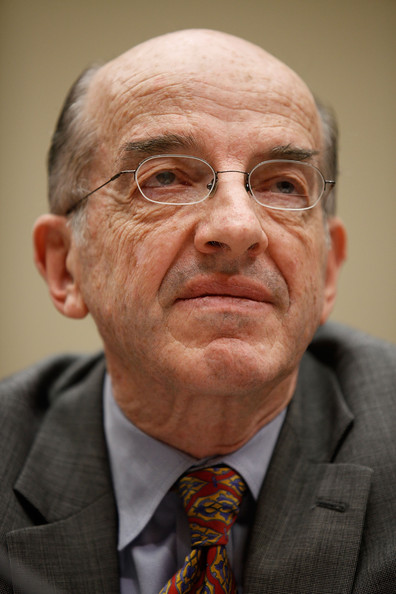2020: Year of Decision

Monday, January 6, 2020
Digital Beat
2020: Year of Decision

I’m glad that one’s over! What a year 2019 was. For twelve long months, we witnessed one pillar after another being ripped from under the institutions that support our democracy. We saw giant steps backward on communications, media, health, education, environment, voting rights, court appointments, money in politics, equal opportunity, women’s rights, labor rights… the list goes on and on. While much of our national regression can be traced to 1600 Pennsylvania Avenue, many others are complicit in the damage that has been, and continues to be, inflicted: a dysfunctional U.S. Senate; courts rapidly retreating to nineteenth-century jurisprudence; federal agencies self-immolating; too many statehouses, even local governments, falling under special interest capture. Making a perilous situation even worse is a sadly diminished media too often fixated on sensational video clips, “if it bleeds, it leads” local and national news, twitter feeds and twitter feuds, horse race elections coverage, and reality show politics—all driven by dominant corporate business plans that ravage real news and prioritize quarterly profits over the obligation to inform the citizens on whom successful self-government depends. It works for the big guys; for the rest of us, not so much.
Communications is my beat, so herewith a brief recap. Merger mania continued its frenetic pace in 2019. Disney-Fox, Comcast-Sky, Gannet-GateHouse, Sprint-T-Mobile, CBS-Viacom, and Nexstar-Tribune are just some of many telecom and media mergers that further consolidate big corporate control over our media and telecom systems. In many cases, the Federal Communications Commission’s deregulatory actions and its willingness (along with the Department of Justice) to rubber-stamp mergers have spurred the race to consolidation. Last year at this time, industry “analysts” told us the consolidation pace would slow in 2019. It didn’t. Guess what they’re saying now: the pace will slow in 2020. I’ve been listening to this tune since I was sworn in as a commissioner at the FCC in 2001. The song never changes; the mergers never slow.
Broadband? We (the FCC or anybody else) don’t have a clue about the penetration of broadband throughout the nation. That’s because it hasn’t been adequately mapped, and the FCC has been relying on industry-produced “maps” that are utterly misleading. For example, if one census block has just a single subscriber, companies have been claiming the whole area is therefore covered! Even Congress is appalled and is trying to fix the mapping problem. Accurate maps would clearly demonstrate that a significant portion of the country lacks access to high-speed broadband. And households fortunate enough to have access often have only one provider available, so forget about competition on pricing and services. On top of that, even our definition of high-speed broadband (25Mbps down, 3 Mbps up!) is vastly outdated. Is it any wonder that the U.S., where the technology was invented, is still far down the list of countries that have deployed broadband with the priority and urgency it needs? Tell me, please, how anyone can be a full participant in our economy and our country if she lacks access to the internet that has become so central to everything we do, from getting a job, to educating ourselves and our children, to caring for our health, to managing our households, to slowing the deterioration of the environment, and to sharing our views and being able to organize with others for a better future. This is why I have long been calling access to high-speed broadband a civil right. I call it that because it is.
Now the big telecoms are blowing their trumpets about 5G. That’s the really advanced technology that will one day, hopefully, fuel the internet of things and bring us a host of new services. But that day is a long way off and will demand huge infrastructure investments if it is ever to expand beyond the few stadiums and truncated locales that actually have 5G now. A nation covered by 5G is way beyond America’s headlights today. Infinitely more cell towers packed infinitely close together will be required all across America to handle the increased bandwidth of 5G, and getting them and the other necessary infrastructure built, especially in rural America, will be a truly mammoth and time-consuming challenge. Meanwhile, the FCC continues to lack a clear vision and strategy to meet the challenges of deploying 5G nationwide. So think more in terms of perhaps decades for this to happen, not just a few years. After all, it’s taken us nearly a quarter of a century to get the decidedly mediocre broadband penetration we have now. Yet the big telecom companies are advertising on TV and in just about every newspaper about how they are spreading 5G across the land at warp speed. Nonsense. Given the shortfall in the availability of current broadband and 4G/LTE services, leaving many areas without fiber or wireless connectivity, wouldn’t it make a lot more sense to complete that job before hyping something so much farther down the road? The companies, the FCC, and the media are all guilty parties in this. Stay tuned because I’m certain we’ll be seeing ads for “6G” before long.
Moving beyond my 5G digression (which I had to get off my chest), let’s return now to the bigger picture. More daunting than all the specific examples of 2019 shortfalls (and there are many more that could be cited) has been the degradation of our democracy and the near-collapse of the kind of informed civic dialogue that is absolutely essential to successful self-government. Government by taunt and twitter, the encouragement of polarization and even hate, media’s widespread failure to cover in-depth the real issues America confronts bear bad tidings for the future—unless we face up to that future in 2020.
It is nuts-and-bolts time for democracy. It is not just time to demand more; it is time to organize and work for the concrete realization of these demands. Breaking the stranglehold of big money and the special interests, making sure every citizen can vote, dismantling gerrymandered electoral districts, providing us all with the fact-based news and information democracy requires, working for consensus instead of conflict will not somehow just happen. These things will never come as gifts to the people from their “leaders” in Washington, DC. They will come because we—you and I—work to make them happen. Voting is, of course, the first step in democracy reform. But getting meaningful positive change requires so much more. Citizen involvement, working together, demanding to be informed, organizing on the issues, getting commitments from candidates, and then holding them accountable, is more demanding. Yet it is the price of democracy.
Will we pay that price? We are paying dearly now for things that disserve our country, so maybe nourishing the roots of self-government isn’t such a heavy price to pay after all. This is the year of decision. We have the opportunity now in 2020 to put America on course to what it can and should be. Let’s seize the opportunity—while we still have it.
Michael Copps served as a commissioner on the Federal Communications Commission from May 2001 to December 2011 and was the FCC's Acting Chairman from January to June 2009. His years at the Commission have been highlighted by his strong defense of "the public interest"; outreach to what he calls "non-traditional stakeholders" in the decisions of the FCC, particularly minorities, Native Americans and the various disabilities communities; and actions to stem the tide of what he regards as excessive consolidation in the nation's media and telecommunications industries. In 2012, former Commissioner Copps joined Common Cause to lead its Media and Democracy Reform Initiative. Common Cause is a nonpartisan, nonprofit advocacy organization founded in 1970 by John Gardner as a vehicle for citizens to make their voices heard in the political process and to hold their elected leaders accountable to the public interest. Learn more about Commissioner Copps in The Media Democracy Agenda: The Strategy and Legacy of FCC Commissioner Michael J. Copps
The Benton Institute for Broadband & Society is a non-profit organization dedicated to ensuring that all people in the U.S. have access to competitive, High-Performance Broadband regardless of where they live or who they are. We believe communication policy - rooted in the values of access, equity, and diversity - has the power to deliver new opportunities and strengthen communities.
© Benton Institute for Broadband & Society 2019. Redistribution of this email publication - both internally and externally - is encouraged if it includes this copyright statement.
For subscribe/unsubscribe info, please email headlinesATbentonDOTorg






